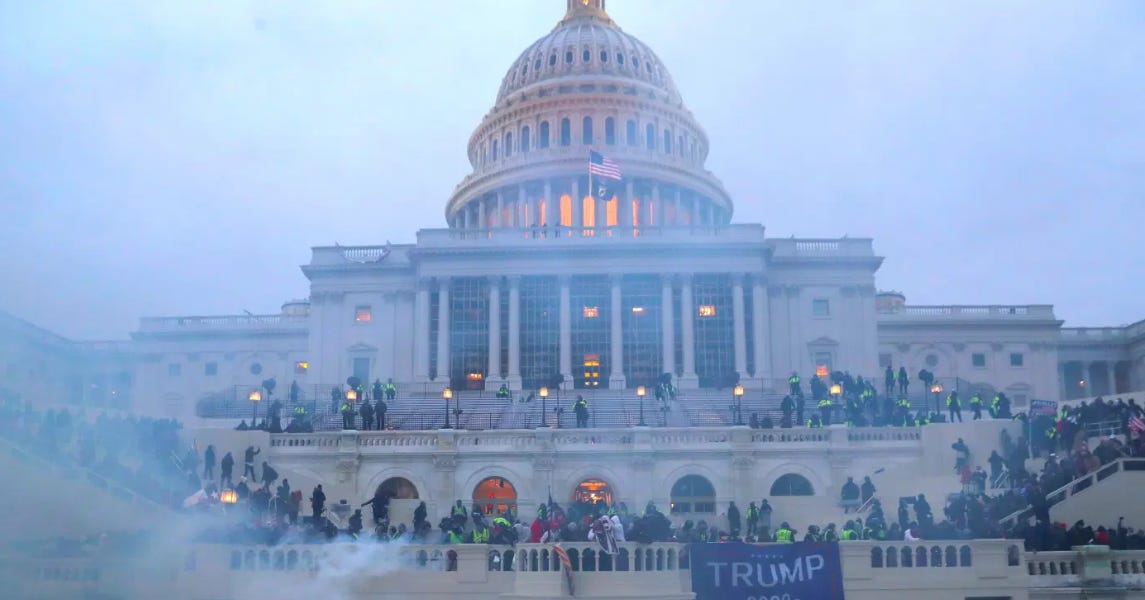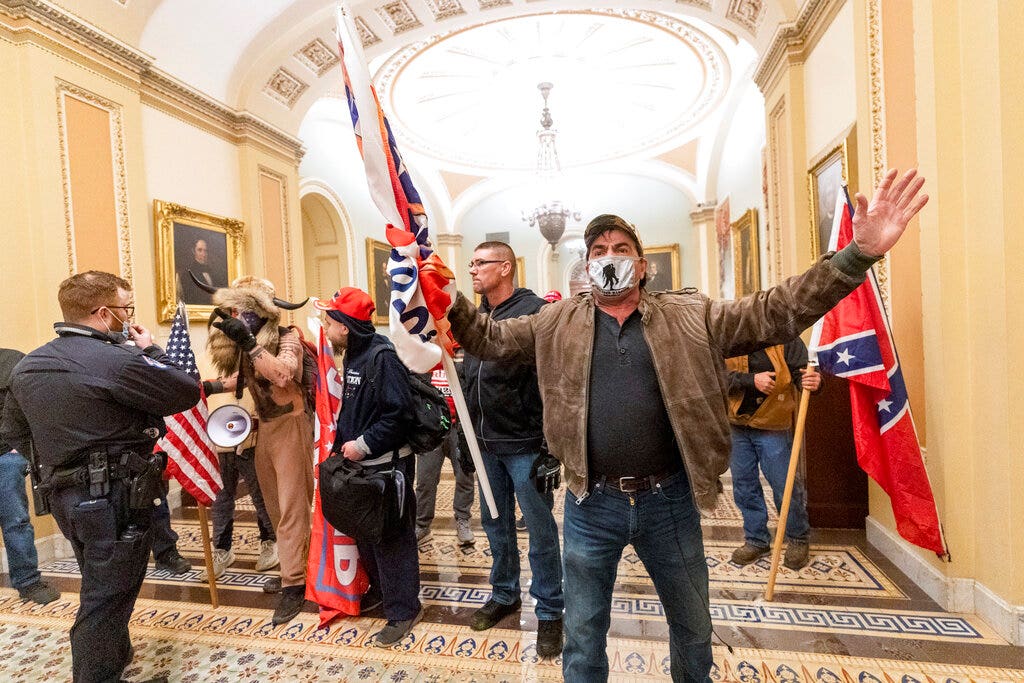setter den her. også noe å tenke igjennom
So here’s the profile of a rioter, a working class person who went overseas eight times in military service, including two combat zones, who then tried her hand at a small business where financial predators and monopolists lurked. She then fell in with conspiratorial social media, and turned into a violent rioter who,
like most of the rioters, thought she was defending America by overturning an election.
[…]
There are two paths in a representative democracy if we have a large group who lives in a cult-like artificial world of misinformation, and many more who rightly or wrongly don’t trust any political institution. We can try to strip these people of representation and political power; that is the guiding idea behind removing Trump, as well as a whole host of conservatives, off of Silicon Valley platforms that have become essential to modern society. Removing these people is a choice to not have a society, to pretend that we can put these people into a closet somewhere and ignore them.
The alternative is less dramatic. We can take on the legal framework behind social media so these products aren’t addictive and radicalizing.
As I’ve written, there are legal immunities and policy choices that allow Facebook to profit in especially toxic ways through compiling detailed user profiles and targeting them with ads. If we change how social media companies make money, we can change how these services operate to make them socially beneficial instead of engines of radicalization.
More broadly, we can try to rebuild our institutions so everyone has a stake in society again, and end the systemic cheating in our commerce that strips people of community. Just saying ‘trust our institutions’ won’t work, at least not until we make those institutions trustworthy.
If we recognize that a major short-term cause in creating this paranoid cult is social media models based on addiction, monopolization and surveillance, and a long-term cause is systemic cheating in our economy and culture, we can break down our problems in manageable chunks. These problems originate from laws and regulations guiding commerce.
[…]
What is important to recognize about large scale popular anger at inchoate social forces is that there really is a conspiracy of elites against them, but it comes not in the form of weird paranoid fantasies, but in the form of genteel wealthy lawyers who make intimidating frowny faces at antitrust conferences when someone brings up using public authority to enforce the rule of law against the powerful. These people tut-tut at riots and protests, not recognizing their own role in creating an environment of lawlessness. The painful work of institutional reform to deal with the chaotic social forces in play requires officials like Chopra, who are not afraid to upset social niceties, but are able to do so with analytical and legal rigor.
Break up and regulate big tech by appointing Rohit Chopra to run the Federal Trade Commission.

mattstoller.substack.com
















